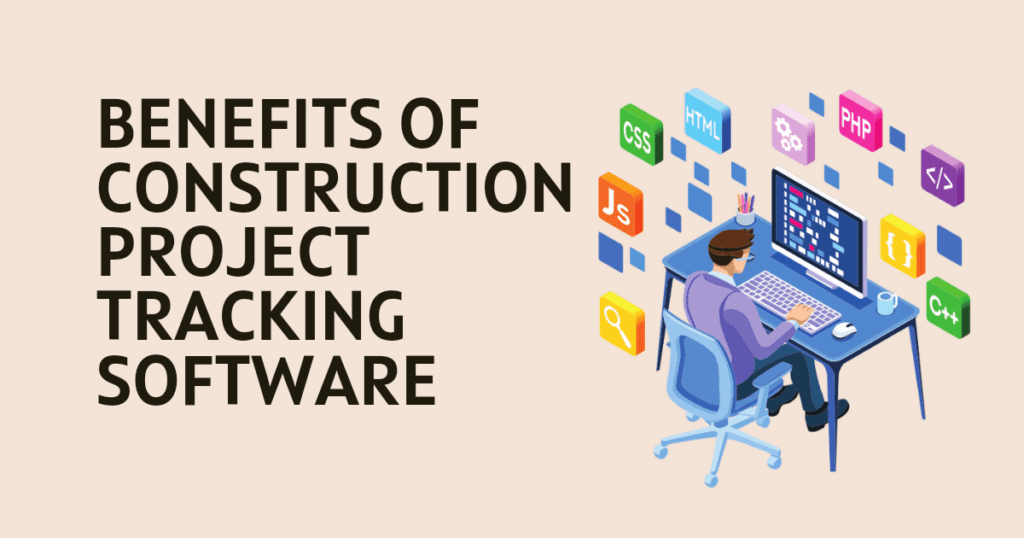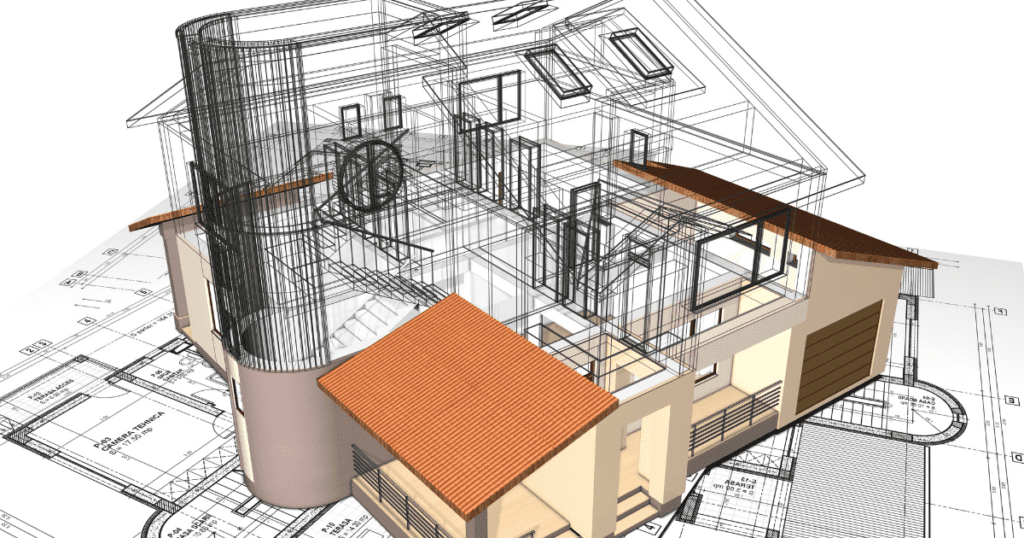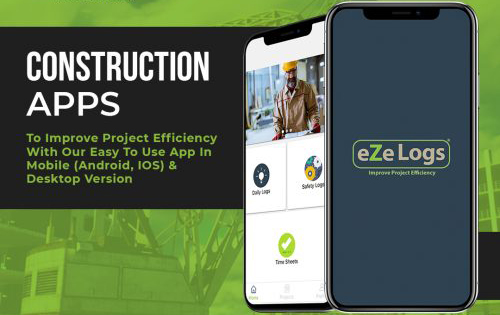Construction project tracking software is a tool that is designed to help project managers and stakeholders to efficiently manage and monitor their construction projects.
It is software that allows project managers to track the progress of their projects, monitor the performance of their teams, and analyze data to make informed decisions.
In the construction industry, project management is crucial for the successful completion of projects. Project managers are responsible for ensuring that projects are completed on time, within budget, and to the required quality standards.

Effective tracking and monitoring are essential to achieving these goals.
Construction projects involve various teams, including architects, engineers, contractors, subcontractors, and suppliers, among others. These teams need to work together seamlessly to ensure the project’s success.
Effective tracking and monitoring help to ensure that everyone is on the same page, and the project is progressing as planned. It helps to identify any issues or potential risks early, allowing for timely corrective actions.
Overall, effective tracking and monitoring help to improve the efficiency, productivity, and profitability of construction projects.
Key Takeaways
- Construction project tracking software helps project managers and stakeholders manage and monitor construction projects more efficiently, allowing them to track progress, monitor team performance, and analyze data to make informed decisions.
- Effective tracking and monitoring improve efficiency, productivity, and profitability, helping to ensure that projects are completed on time, within budget, and to the required quality standards.
- Key benefits of construction project tracking software include enhanced project planning and scheduling, better communication and collaboration, improved resource allocation and management, increased project visibility and transparency, and a streamlined decision-making process.
- Key features of construction project tracking software include project planning and scheduling tools, real-time data tracking and analysis, communication and collaboration tools, resource management and allocation tools, and reporting and analytics.
- Factors to consider when choosing construction project tracking software include budget and pricing models, user interface and ease of use, compatibility with existing systems, and scalability and flexibility.
Use the software to manage the whole Construction Project Tracking process
Benefits of construction project tracking software
Enhancing Project Planning and Scheduling:
Construction project tracking software helps project managers create comprehensive plans and schedules.
It simplifies the task breakdown into smaller tasks, sets deadlines, and assigns duties to team members – all while monitoring project progress, identifying delays or bottlenecks early on, and taking corrective actions to keep everything on track.

The software allows them to break down large projects into manageable chunks for easier management.
Additionally, they gain insight into why certain things take longer than anticipated or take unexpected turns; plus, they get valuable data regarding delays or bottlenecks, so corrective measures can be taken, so the schedule remains on track.
Enhancing Communication and Collaboration:
Effective communication and collaboration are paramount for the success of any construction project.
Construction project tracking software enables team members to share information, collaborate on tasks, and communicate in real-time – guaranteeing everyone is on the same page and that any issues or concerns are addressed promptly. This ensures everyone stays motivated during the entire process.
Better Resource Allocation and Management:
Construction projects require many resources, such as labor, equipment, and materials.
Construction project tracking software helps project managers monitor these resources efficiently to guarantee that the right resources are allocated to the correct tasks and used efficiently – leading to cost savings and improved project efficiency.
Increased project Visibility and Transparency:
Construction project tracking software gives stakeholders real-time insight into the project status. It enables them to monitor progress, identify any issues or risks, and take corrective actions – all of which contribute to increased transparency, accountability, and stakeholder satisfaction.
Streamlined Decision-Making Process:
Construction project tracking software equips project managers with the data necessary to make informed decisions.
It allows them to analyze project information, identify trends, and make quicker judgments – leading to improved project outcomes and reduced risks. Furthermore, this helps guarantee that decisions are based on accurate and up-to-date info.
Key features of construction project tracking software
Project planning and scheduling tools: Construction project tracking software comes with project planning and scheduling tools that allow project managers to create and manage project plans, set timelines, and assign tasks to team members.
These tools help project managers to break down the project into smaller tasks, set deadlines, and allocate resources to each task. This helps to ensure that the project stays on schedule and within budget.
Real-time data tracking and analysis: Construction project tracking software allows project managers to track the progress of the project in real-time. It collects data from various sources, such as work logs, schedules, and financial records, and presents it in an easy-to-understand format.
Project managers can use this data to identify any delays, bottlenecks, or issues and take corrective actions.
Communication and collaboration tools: Effective communication and collaboration are critical to the success of any construction project.
Construction project tracking software comes with communication and collaboration tools that allow team members to share information, collaborate on tasks, and communicate in real time. This helps to ensure that everyone is on the same page and that any issues or concerns are addressed promptly.
Resource management and allocation tools: Construction projects involve many resources, including labor, equipment, and materials. Construction project tracking software allows project managers to track and manage these resources efficiently.
It helps to ensure that the right resources are allocated to the right tasks and that they are being used effectively. This can lead to cost savings and improved project efficiency.
Reporting and analytics: Construction project tracking software comes with reporting and analytics tools that allow project managers to generate reports on project progress, budget, and performance.
These tools help project managers to identify any issues or risks and make informed decisions based on accurate and up-to-date information. They can also use these reports to communicate project progress to stakeholders and team members.
Factors to consider when choosing construction project tracking software
Budget and pricing models: One of the critical factors to consider when choosing construction project tracking software is the budget and pricing models.
Construction project tracking software comes with various pricing models, such as subscription-based, one-time payment, or pay-per-use. Project managers need to evaluate their budgets and choose a pricing model that fits their needs.
User interface and ease of use: Construction project tracking software should be easy to use and navigate. The user interface should be intuitive and user-friendly, allowing team members to access and use the software without any specialized training.
Project managers should choose software that has a straightforward user interface that requires minimal training.
Compatibility with existing systems: Construction project tracking software should be compatible with existing systems, such as project management software, accounting software, or ERP systems.
This ensures that data can be easily integrated and shared across different systems, improving data accuracy and reducing errors.
Scalability and flexibility: Construction projects can vary in size and complexity. Project managers need to choose construction project tracking software that can scale up or down as the project needs to change. The software should also be flexible and customizable to meet the project’s specific needs.
Customer support and training: Construction project tracking software can be complex, and team members may require training and support to use it effectively.
Project managers need to choose software that comes with customer support and training to ensure that team members can use the software efficiently. The software provider should offer customer support and training options, such as online tutorials, user manuals, and helpdesk support.
The Bottom Line
Construction project tracking software is an essential tool for project managers and stakeholders in the construction industry.
It helps to improve project planning, scheduling, communication, resource allocation, and decision-making, resulting in cost savings, increased profitability, and customer satisfaction.
Investing in the right project-tracking software is crucial to achieving these benefits. Project managers need to consider factors such as budget, user interface, compatibility, scalability, and customer support when choosing construction project tracking software.
They should also look for software that has features such as project planning and scheduling tools, real-time data tracking, communication and collaboration tools, resource management and allocation tools, and reporting and analytics.
Construction project tracking software is a valuable tool for managing construction projects effectively. Project managers and stakeholders who invest in the right software can expect to see significant improvements in project efficiency, cost savings, and customer satisfaction.
Therefore, it is recommended that construction companies invest in construction project tracking software to improve their project management processes and stay competitive in the industry.


